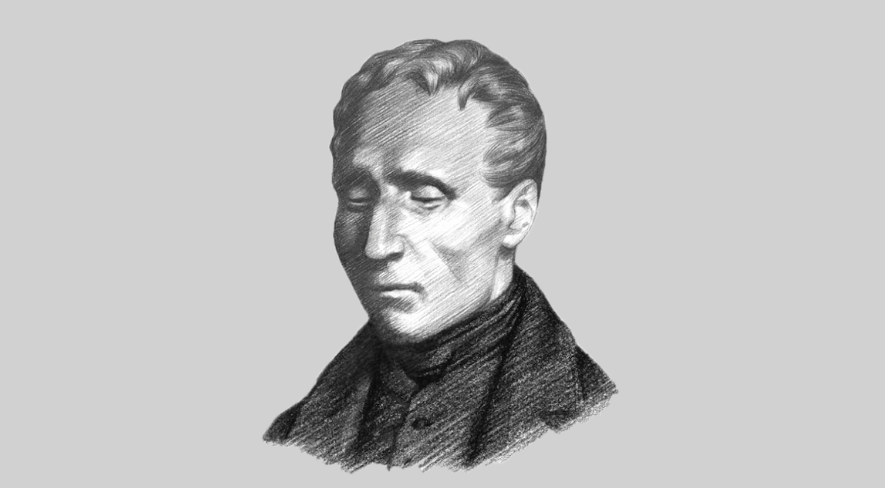Louis Braille, the man who invented the script for the visually-impaired, was born on 4 January 1809. He hailed from Coupvray, France.
Louis and his three siblings lived with parents Monique Braille and Simon-Rene Braille. When Louis was three, he was playing with in his father’s harness shop when the tool slipped and struck him in the eye. His eye became infected and he lost his vision.
Louis continued going to normal school for two more years after his blindness, but could not learn by only reading out lessons. He soon won a scholarship to attend classes at the Royal Institute.
Seeing the Light
In 1821, Braille got to know of a system of communication by Captain Charles Barbier of the French Army. Barbier invented “night writing” which was a code of dots and dashes etched on thick paper. These impressions could be interpreted through touch, enabling soldiers on the battlefield to communicate without needing to speak or use any light.
Inspired by this system, Louis resolved to create something of his own. By the age of 15, he had trimmed Barbier’s 12 dots into six, finding 63 ways to use a six-dot cell in an area no larger than a fingertip.
Taking Others to the Light
By 1833 Braille was offered a full professorship where he taught history, geometry and algebra. Braille’s penchant for music enabled him to become an accomplished cellist and organist.
In 1852, Louis died just two days after his 43rd Birthday. However, his greatness was never recognised during his life. In 1854, through the overwhelming insistence of visually impaired pupils, Braille’s system was finally implemented at the Royal Institute.
But it took a century from his death for the French government to recognise his brilliance. In 1952, the French Government hailed him as a “hero” as they exhumed Braille’s body from his village cemetery in his home town and reburied him in Pantheon in Paris with other French national heroes. However, a strange agreement was reached wherein Braille’s hands were removed and buried in the village cemetery to resolve the sentiments of the villagers and at the same time make him an proponent of equality in education.

